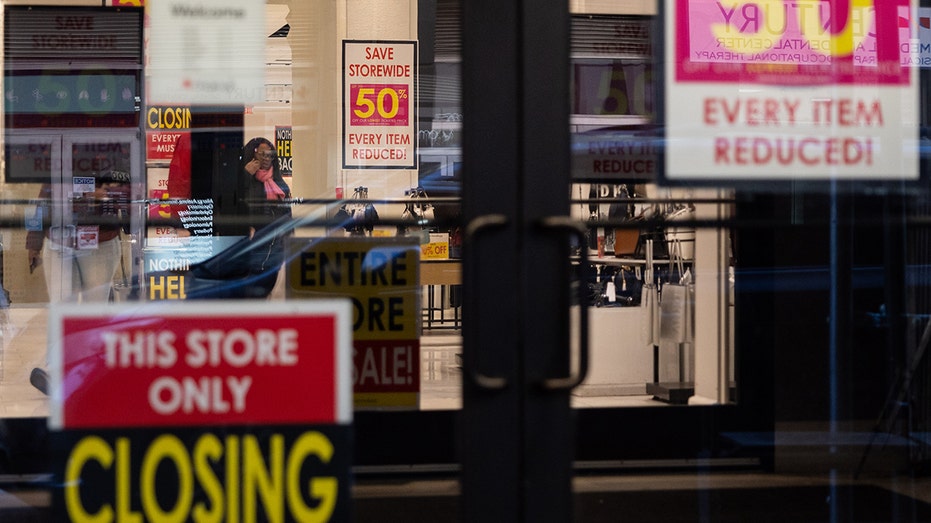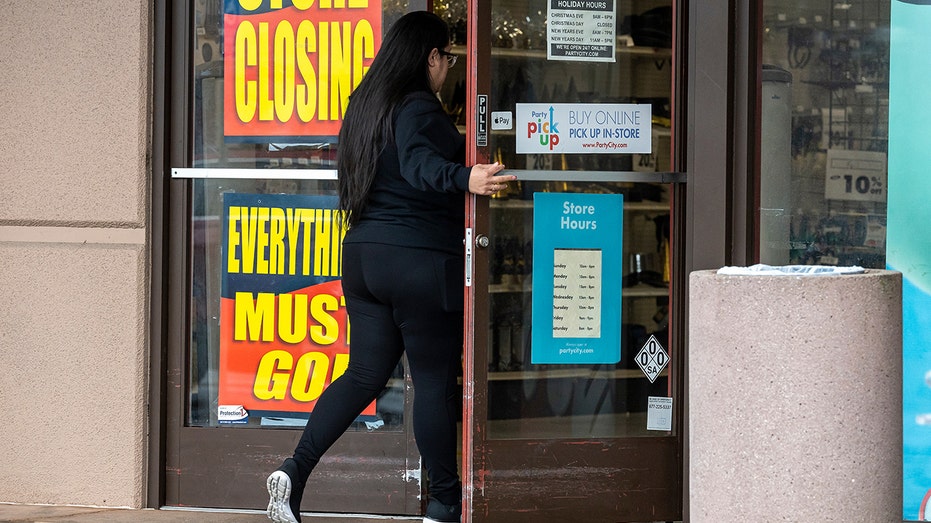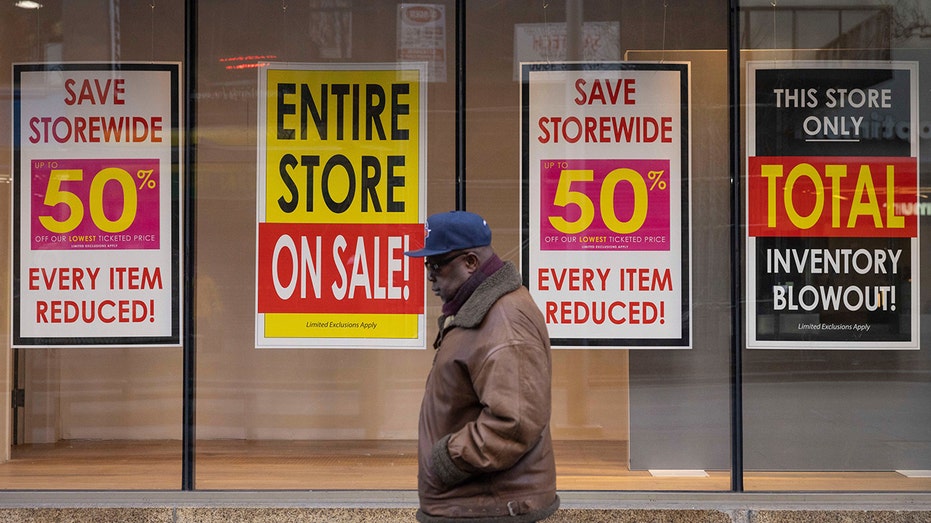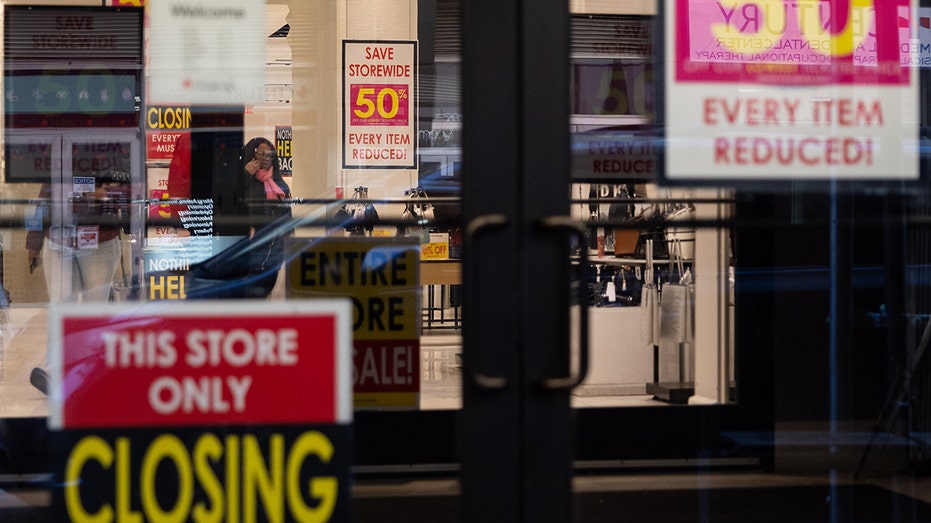Coresight Research estimates there will be another wave of retail closures in 2025 as legacy companies face relentless competition.
An ongoing surge of U.S. retail closures is expected to persist in 2025 as legacy companies face relentless competition from eCommerce platforms Shein and Temu.
Coresight Research, a firm specializing in retail and technology, estimates that closures will rise to 15,000 in 2025. The firm also projects about 5,800 store openings nationwide this year, but results in a net loss.
With a wave of bankruptcies and closures announced in 2024 from major brands such as Big Lots, Party City, and recent announcements from Kohl’s and Macy’s extending into 2025, Coresight Research estimated that over 1,900 store closures are expected by the second week of 2025.
To put this in perspective, 7,323 stores closed in 2024, marking the highest number of closures since 2020, when nearly 10,000 stores shut down, according to Coresight Research.
It was a nearly 60% increase compared to the same 52-week period in 2023.
US RETAIL CLOSURES HIT HIGHEST LEVEL SINCE PANDEMIC
John Mercer, Coresight’s head of global research, told FOX Business that the same issues plaguing the industry in 2024 will persist, “specifically the competitive pressures” from the fast fashion platforms that have risen in prominence in recent years as inflationary consumers leveraged their cheap prices.
Shein and Temu offer a range of products and clothing at low prices. The companies face criticism over labor practices, environmental concerns, and business ethics such as intellectual property infringement.

Sale and store closing signs at a Macy’s store in the Brooklyn borough of New York, US, on Tuesday, Jan. 14, 2025. (Yuki Iwamura/Bloomberg via Getty Images / Getty Images)
Still, people continue to shop at the platforms, making them a threat to U.S. based retailers.
“We think Temu and Shein together worldwide are a $100 billion threat effectively to retailers,” Mercer said. “We reckon they made about $100 billion in global sales last year. The vast majority of that will be peeled away from legacy retailers… taking sales, taking market share at their expense,” Mercer continued.
Coresight believes the “threat from Temu and Shein is an under-recognized pressure on many retailers” and that “there’s little prospect of that competitive pressure easing up,” according to Mercer.
Another factor contributing to their estimate is the upcoming period of “policy disruption,” according to Mercer.
WHY NEIGHBORHOOD PHARMACIES ARE CLOSING
“We’re not sure yet what’s going to happen with tariffs. We’re not sure how tariffs would flow through to costs on retailers, internal consumers and how consumers would react to that,” he said.
Mercer said the risk with tariffs is that “you end up with escalating inflation.”

A shopper enters a Party City store in Richmond, California, US, on Thursday, Dec. 26, 2024. (David Paul Morris/Bloomberg via Getty Images / Getty Images)
“We saw how badly U.S. consumers reacted last time there was increased inflation. The risk is we get more inflation and consumers respond likewise again,” he added.
Putting tariffs aside, positive trends in Coresight Research’s consumer sentiment metrics and upbeat macroeconomic indicators suggest that consumer demand could be reasonably strong, according to Mercer. But even if demand is strong, the “risk to legacy retailers is that, as I mentioned, consumer demand, increasingly goes to newer players.”
MACY’S ACCELERATES STORE CLOSURES THIS YEAR
Coresight Research CEO Deborah Weinswig said in a statement that inflation coupled with a “growing preference among consumers to shop online to find the cheapest deals” took a toll on many brick-and-mortar retailers last year.

Sale signage outside a Macy’s store in the Brooklyn borough of New York, US, on Tuesday, Jan. 14, 2025. (Yuki Iwamura/Bloomberg via Getty Images / Getty Images)
Several brands fell victim including American Freight, which announced it was shutting all 329 of its locations as part of its parent company’s bankruptcy proceedings, and Big Lots filed for Chapter 11 bankruptcy protection in September to help facilitate the sale of “substantially all” of its assets to its “stalking horse bidder” Nexus Capital Management. It also announced plans to permanently close dozens of stores.
Macy’s also began shuttering locations as part of a turnaround strategy announced in February 2024. It’s CEO, Tony Spring, told analysts during a recent earnings call that the company now expects to close about 65 locations this year, up from its previous forecast of 50 announced at the start of the year.
GET FOX BUSINESS ON THE GO BY CLICKING HERE
Party City, with 738 expected closures, and Big Lots, with about 661 expected closures, is leading the pack for closures so far this year. 7-Eleven isn’t far behind with 333 expected closures.
Coresight also tracked expected closures for Aldi, CVS Health, Dollar General, Dollar Tree, Family Dollar, Five Below, JD Sports, Kohl’s, Macy’s, The TJX Companies and Walgreens Boots Alliance.
However, the majority of companies that are mentioned are simultaneously opening up locations throughout the year.
Mercer said it’s important to recognize that there are three categories of retail closure activity. In one case, retailers may be closing all stores because they are liquidating their assets. There are also distressed retailers who are restructuring and closing large swathes of stores, but not necessarily all of them.
The third kind of closure is when legacy retailers recognize that they need to reshape their estates to better cater to changing consumer preferences.
